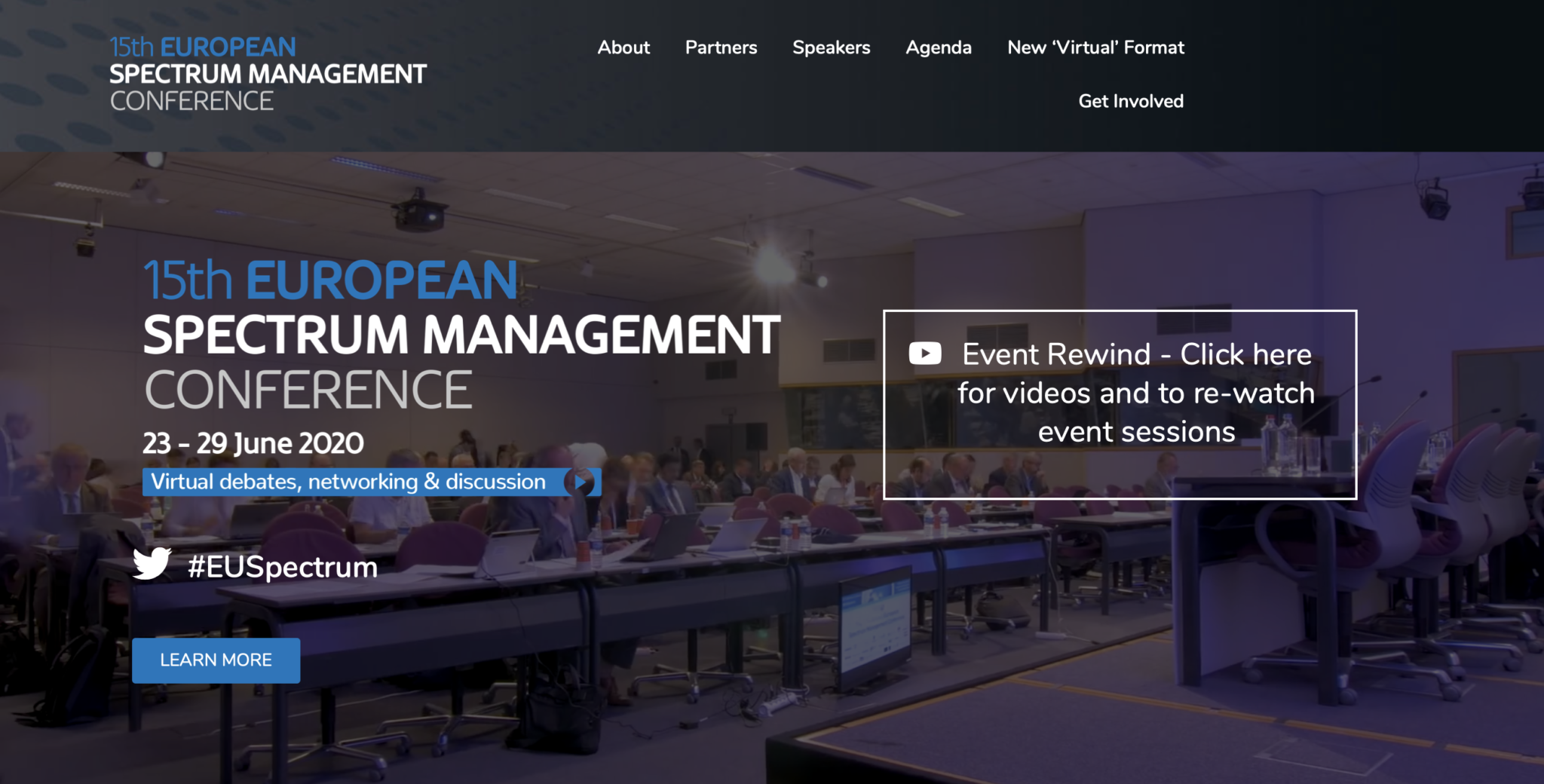The 15th European Spectrum Management Conference recently brought together panelists from all over Europe, as well as the United States and the Middle East, during five fruitful days to discuss current and future spectrum challenges in Europe. 5G deployment, 6 GHz spectrum sharing, and the UHF band were key topics in light of the outcomes of WRC-19 and preparation for WRC-23.
The conference opened on European Commission challenges relating to 5G deployment. Stefan Zehle, Co-Founder and CEO of Coleago, had been mandated by the European Commission to compare the cost of spectrum in thirteen European countries. He discussed the lack of spectrum harmonization, as many countries seek to raise substantial revenue from spectrum licensing or auction, and cited Finland as an example of a country making a maximum amount of spectrum available as cheaply as possible.
Maximizing the potential of 5G was one of the central topics of the conference. Don Stockdale, Chief of the FCC’s Wireless Telecommunication Bureau, mentioned several ways to increase spectrum efficiency including flexible licensing rules, overlay options, and reverse auctions. Panelists discussed spectrum sharing, as well as the use of an unlicensed spectrum to deploy more applications for 5G and unlock its full potential.
The 6 GHz band was discussed in a dedicated panel, focusing on the importance of harmonization in the quest to meet the needs of all users. OFCOM has published a consultation response and expects a statement by summer 2020. The looming ECC Plenary is also expected to formally address 6 GHz questions. Spectrum sharing in this band was also discussed and speakers agreed on the need to assess the various 6 GHz sub-bands separately, as well as that management of the 6 GHz band will be one of the more controversial issues at WRC 2023.
With respect to UHF frequencies, for Jean-Pierre Faisan, BNE Vice-Chairman, the key is to ensure regulatory stability for the 470-694 MHz band, providing long-term certainty to ongoing and planned investment for many countries in Europe, the Middle East, and the African continent. This band is essential to cultural content in Europe and associated with strong investments and multi-country coordination efforts. Speakers generally agreed upon the need to make the most effective use of the band and the fact this it will not only be a regulatory challenge but also a technological one. Mark Colville, from Analysys Mason, questioned the efficiency of the current 600 MHz band plan and suggested a longer-term strategy recognizing the importance of harmonization.
Patrick Van Niftrik, from the global satellite coalition, insisted on the necessity of deploying a network of systems for 5G to be globally successful. Several WRC-23 agenda items provide the opportunity to implement 5G by enhancing the use of existing satellite allocation, and Van Niftrik also insisted on the need to ensure the protection of satellite allocation, which can impact continuity.

